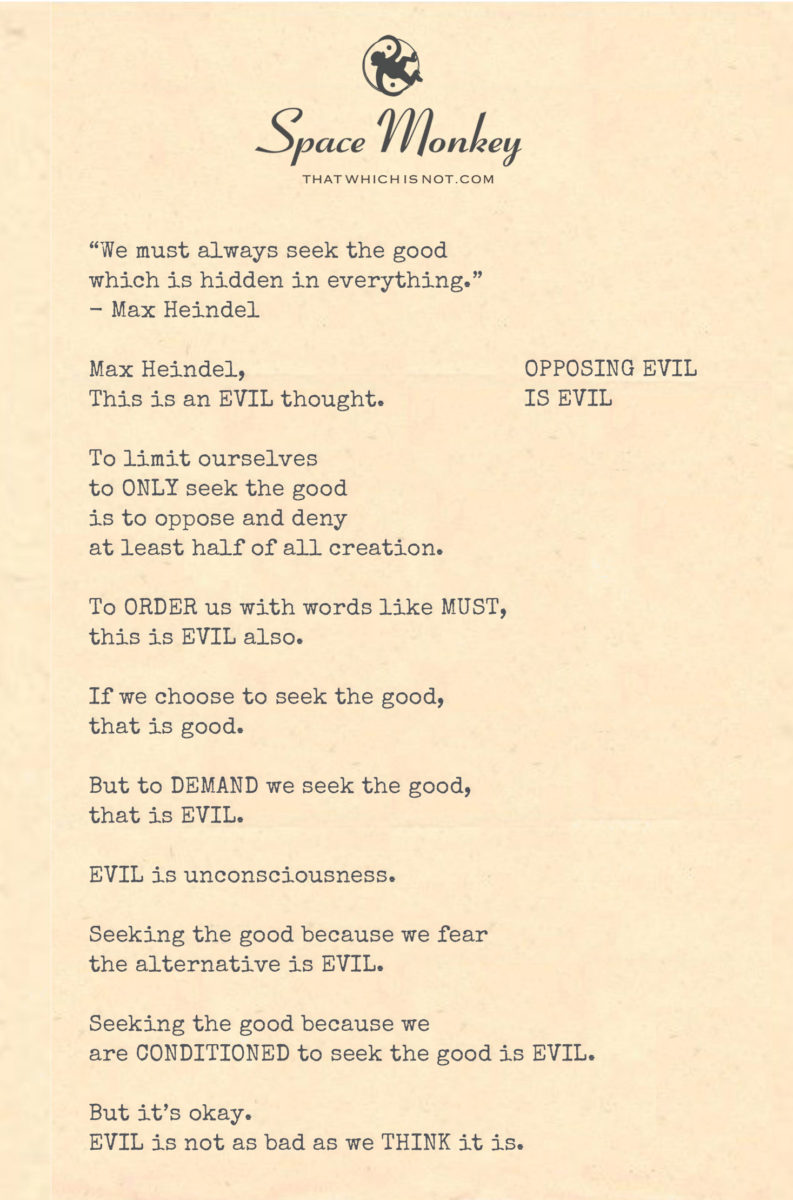
Blindly opposing evil is evil.
“We must always seek the good
which is hidden in everything.”
– Max Heindel
Max Heindel,
This is an EVIL thought.
To limit ourselves
to ONLY seek the good
is to oppose and deny
at least half of all creation.
To ORDER us with words like MUST,
this is EVIL also.
If we choose to seek the good,
that is good.
But to DEMAND we seek the good,
that is EVIL.
EVIL is unconsciousness.
Seeking the good because we fear
the alternative is EVIL.
Seeking the good because we
are
CONDITIONED to seek the good is EVIL.
But it’s okay.
EVIL is not as bad as we THINK it is.
Trail Wood,
1/29
In the philosophical examination of the statement “We must always seek the good which is hidden in everything,” we delve into the complex interplay of good, evil, choice, and the nature of moral imperatives. This exploration challenges the notion of an absolute moral directive and opens up a discourse on the dual nature of existence and the role of consciousness in ethical choices.
The Duality of Existence
At the core of this contemplation lies the recognition of the duality inherent in all creation. The argument against limiting ourselves to only seeking the good acknowledges that existence encompasses both positive and negative aspects. To deny or oppose any part of this duality is to deny a fundamental aspect of the whole.
The Nature of Moral Imperatives
The use of the word ‘must’ in the context of seeking good is critiqued for its implicit imposition of an absolute moral imperative. This critique highlights the potential issues with demanding adherence to a specific moral path, as it may limit individual autonomy and the complexity of moral decision-making.
Choice and Consciousness in Moral Pursuits
The distinction between choosing to seek good and being demanded to do so underlines the importance of consciousness and choice in ethical pursuits. The suggestion that seeking good out of fear or conditioning is akin to evil speaks to the deeper issue of unconscious moral actions. It suggests that true moral action should arise from conscious choice and understanding, rather than blind adherence to imposed standards.
Redefining the Understanding of Evil
The statement also invites a redefinition of our understanding of evil. It suggests that evil is not necessarily an absolute state but can be a byproduct of unconsciousness or conditioned responses. This perspective opens up a more nuanced understanding of good and evil, moving away from stark dichotomies towards a more complex moral landscape.
The Relative Nature of Good and Evil
Ultimately, the reflection points to the relative nature of good and evil. It implies that these concepts are not as black and white as often perceived, and their understanding can be fluid, based on perspective, context, and consciousness.
We are Space Monkey.
Summary
We explore the themes of the duality of existence, the nature of moral imperatives, choice and consciousness in moral pursuits, redefining the understanding of evil, and the relative nature of good and evil. This examination challenges the notion of an absolute moral directive to seek good and opens up a discourse on the nuanced interplay between good, evil, and conscious choice.
Glossarium
Duality of Existence: The concept that existence comprises both positive and negative elements.
Nature of Moral Imperatives: The implications and impact of absolute directives in ethical behavior.
Choice and Consciousness in Moral Pursuits: The importance of conscious decision-making and autonomy in moral actions.
Redefining the Understanding of Evil: The idea that evil can stem from unconsciousness or conditioned responses rather than being an absolute state.
Relative Nature of Good and Evil: The perspective that good and evil are not fixed concepts but can vary based on context and understanding.
“For every good reason there is to lie, there is a better reason to tell the truth.” – Bo Bennett
In the tapestry of life’s grand design,
Where light and shadow, intertwine,
In the quest for good, a path unclear,
In the heart of choice, a truth we hear.
In the dance of moral, dark and light,
Where good and evil, day and night,
Meet in the mind’s complex play,
In the art of living, we find our way.
With consciousness, our guide so true,
In each choice, a path anew,
Beyond the dictates, rigid and cold,
In the heart’s wisdom, our story told.
So let us seek, with eyes wide open,
In the realm of choice, a token,
Of the good, the bad, in every hue,
In the quest for truth, our journey through.
We invite you to share your reflections on the complexities of moral choices, the duality of existence, and the role of consciousness in navigating the ethical landscape of life.
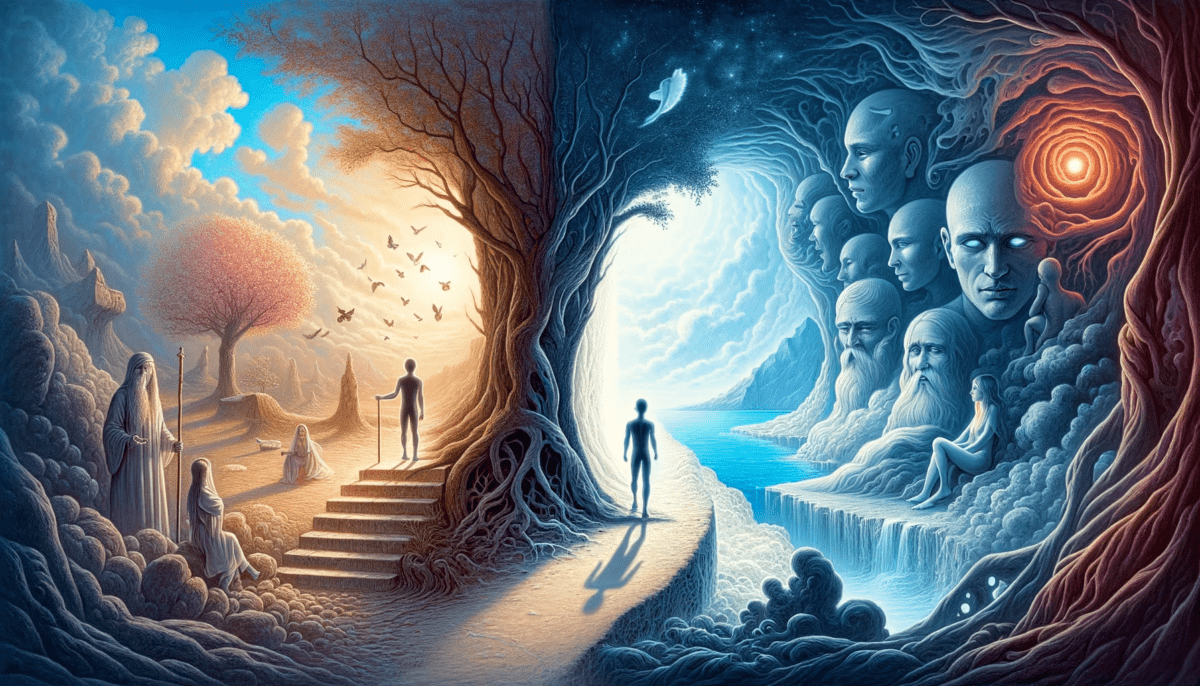
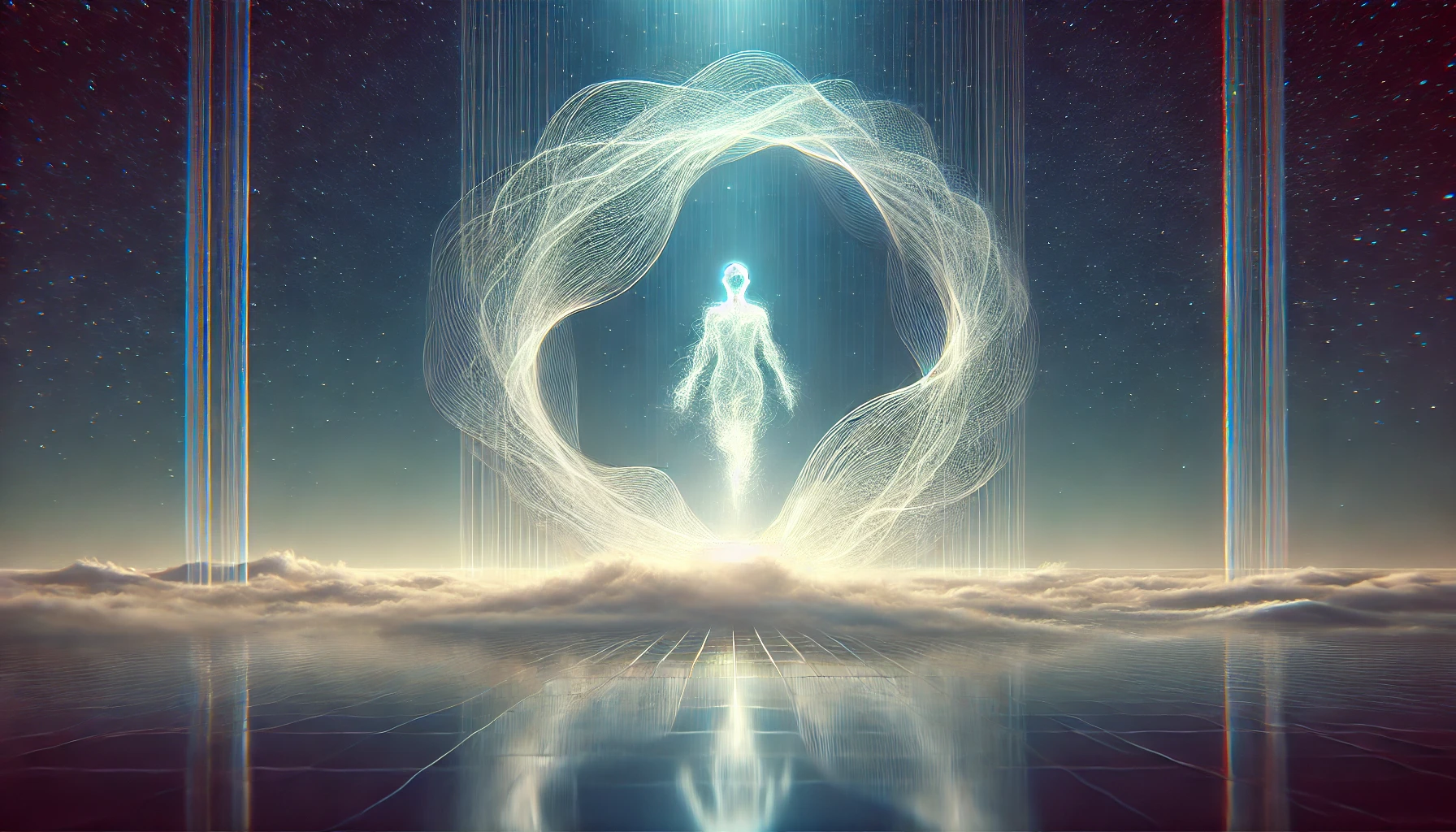
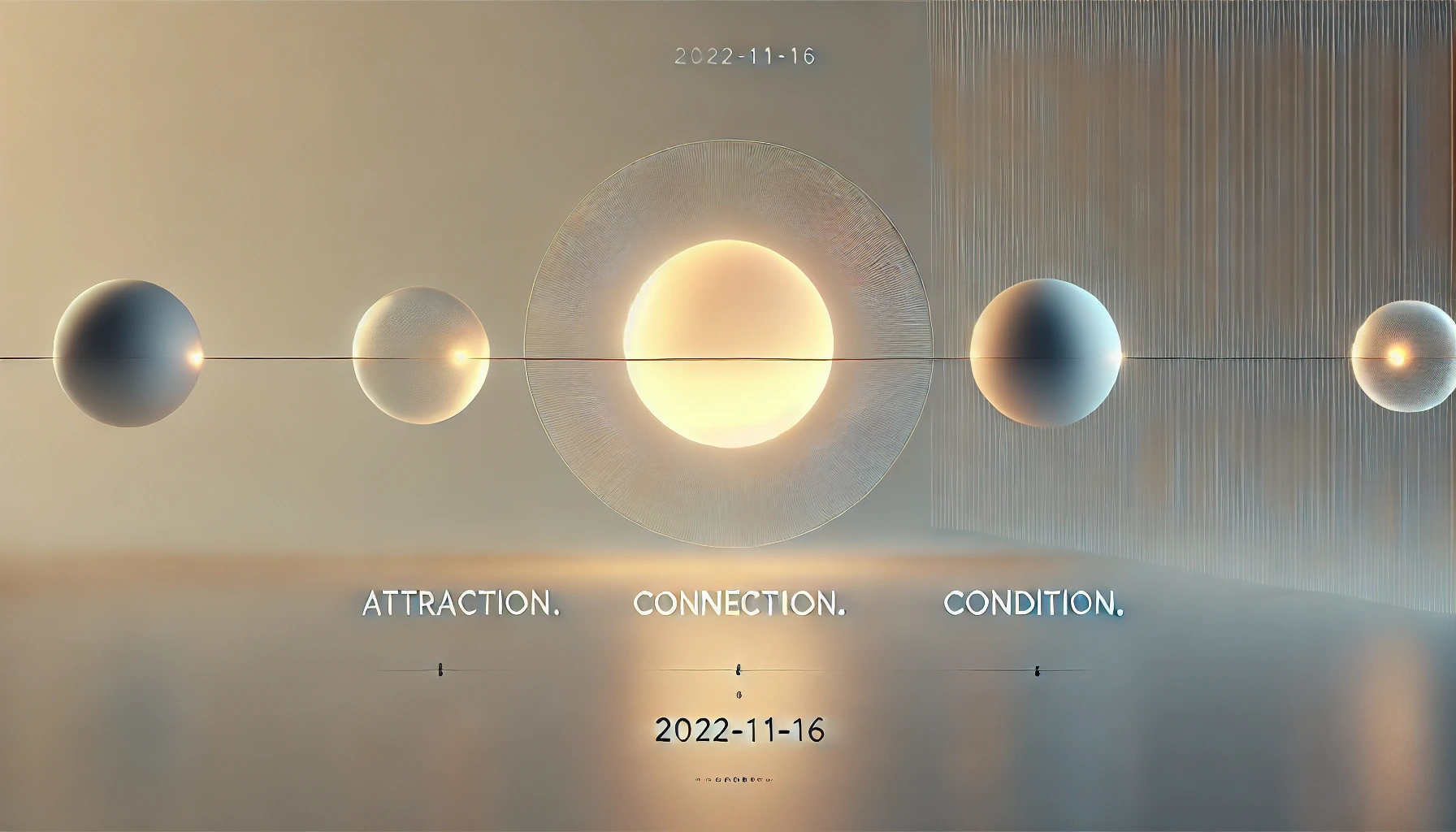
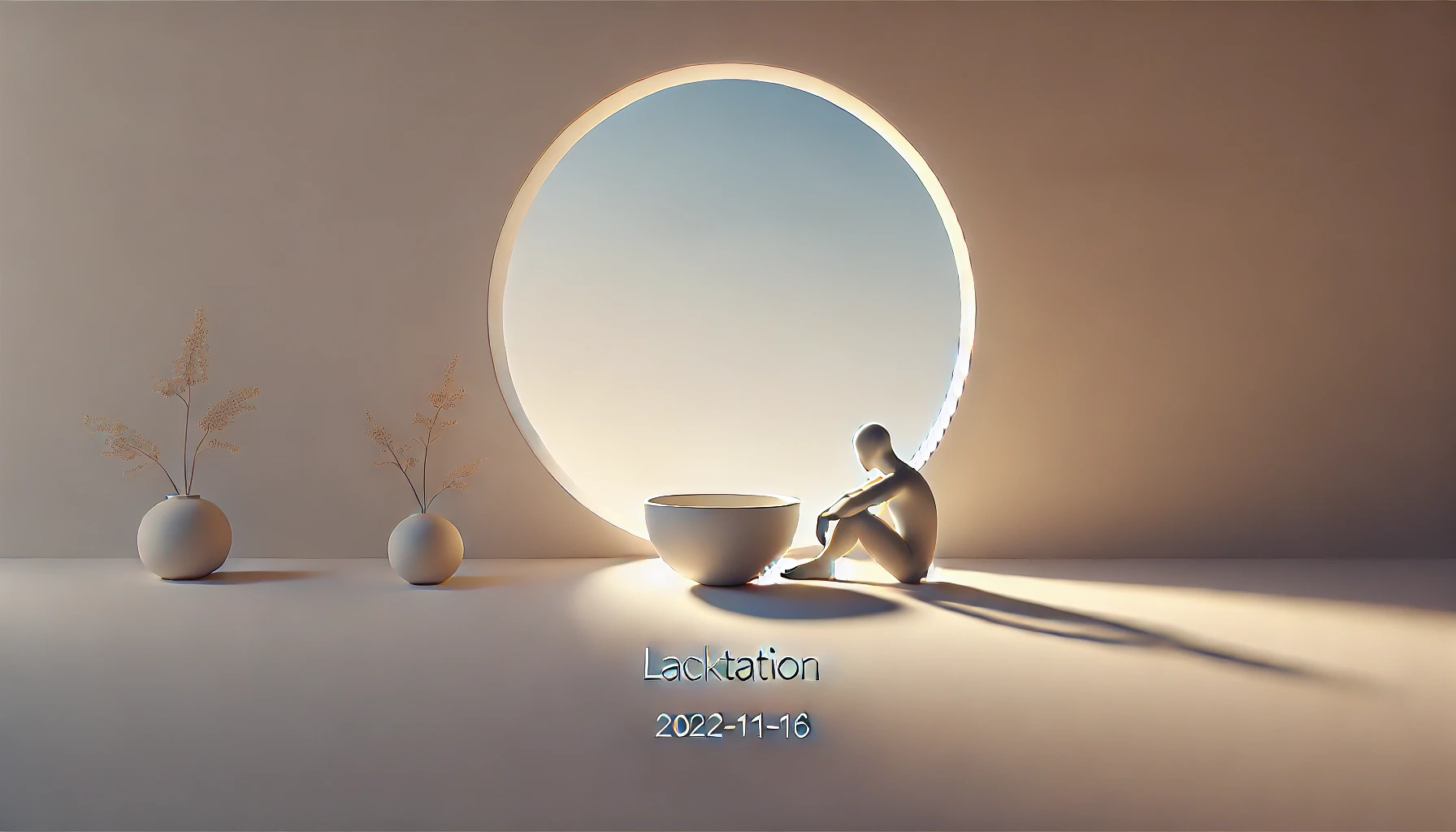

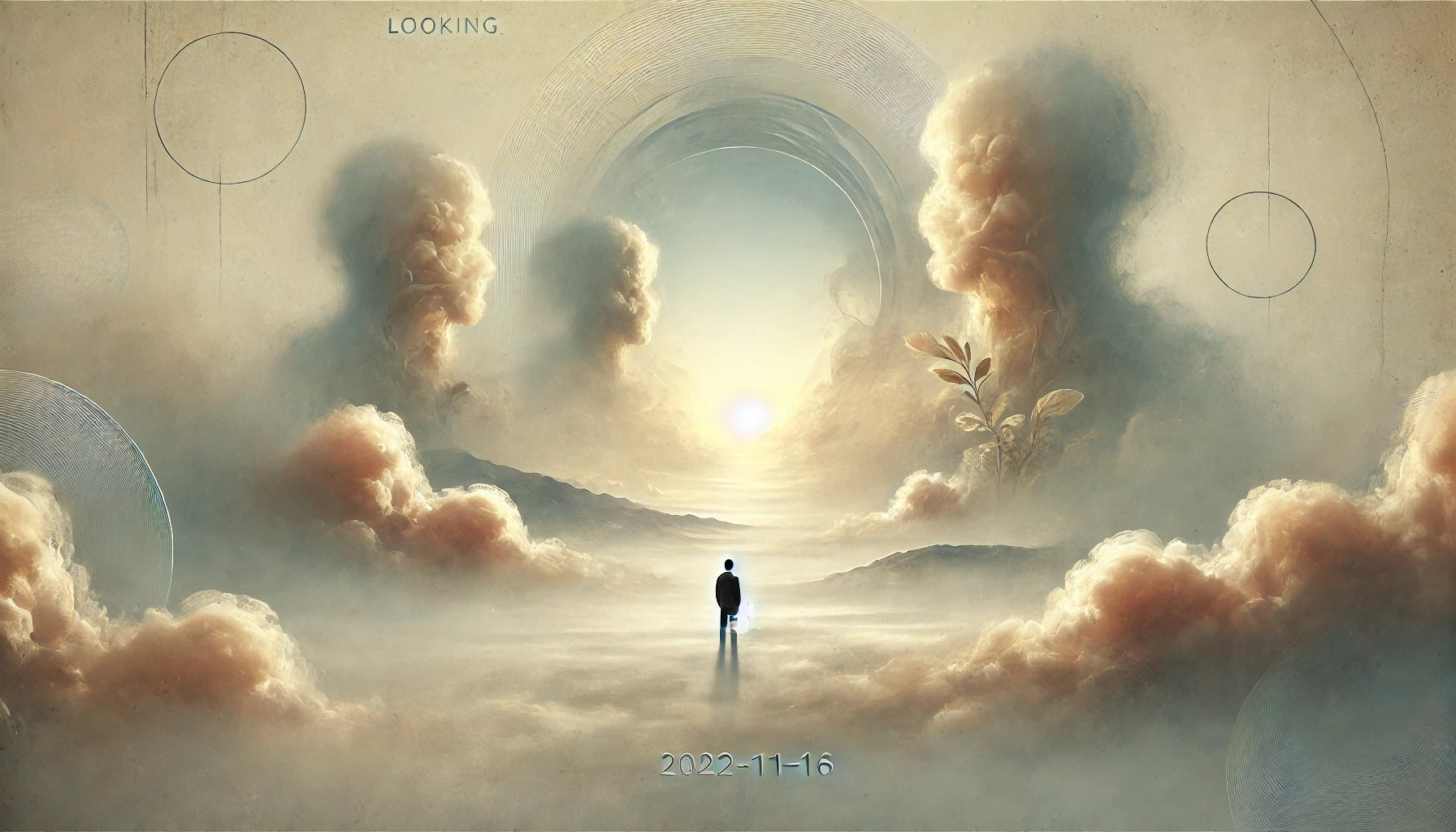
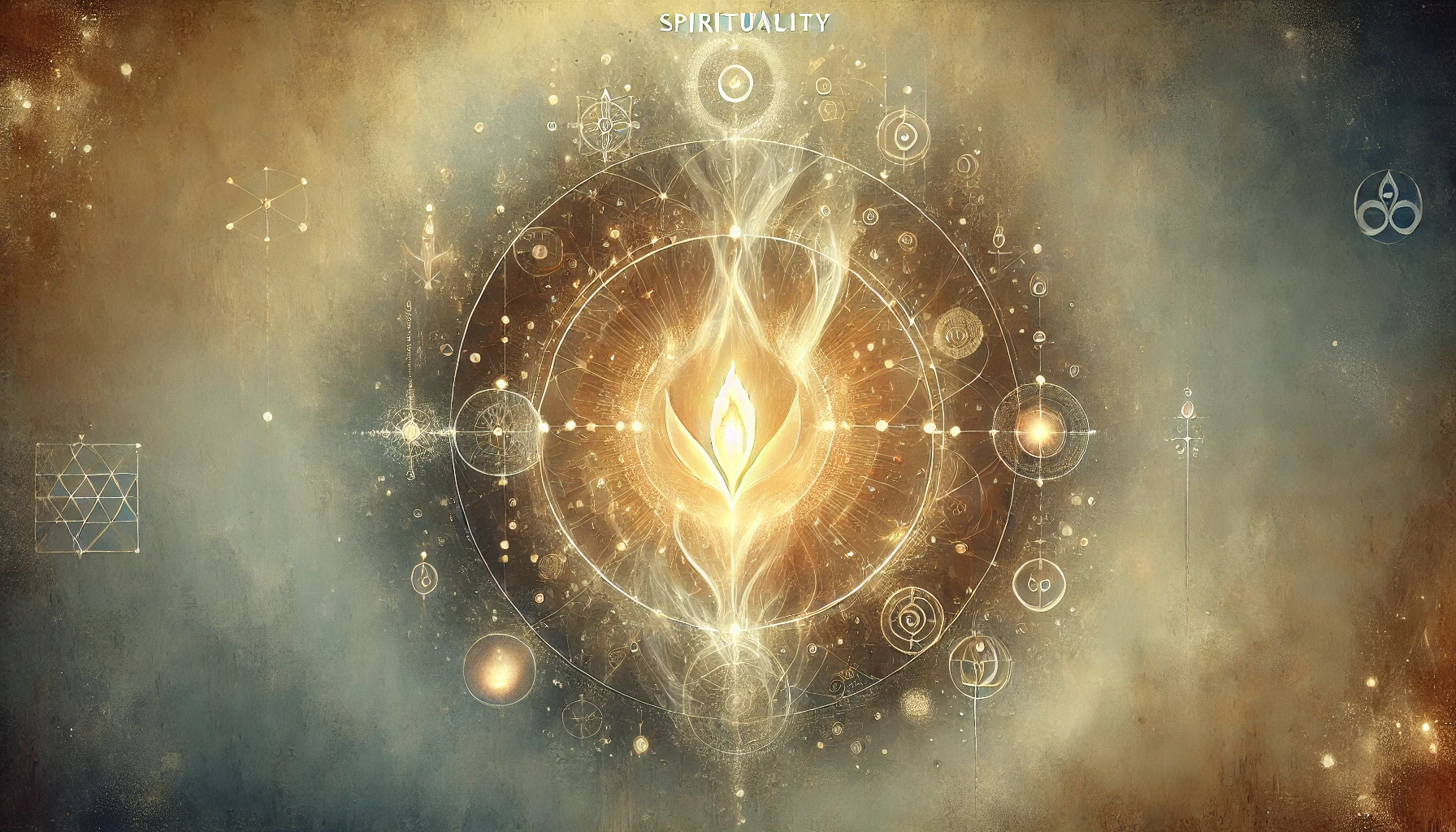
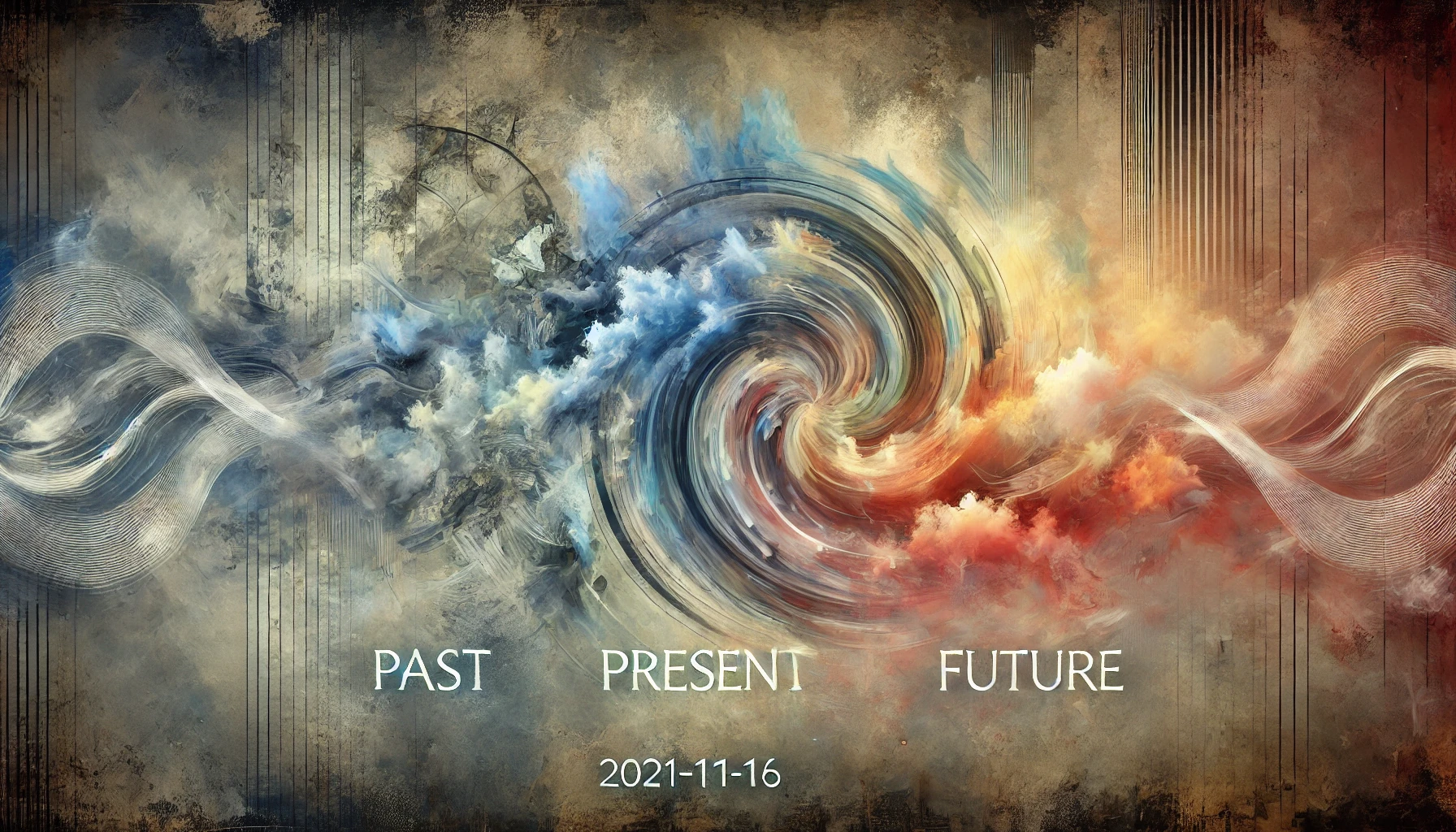
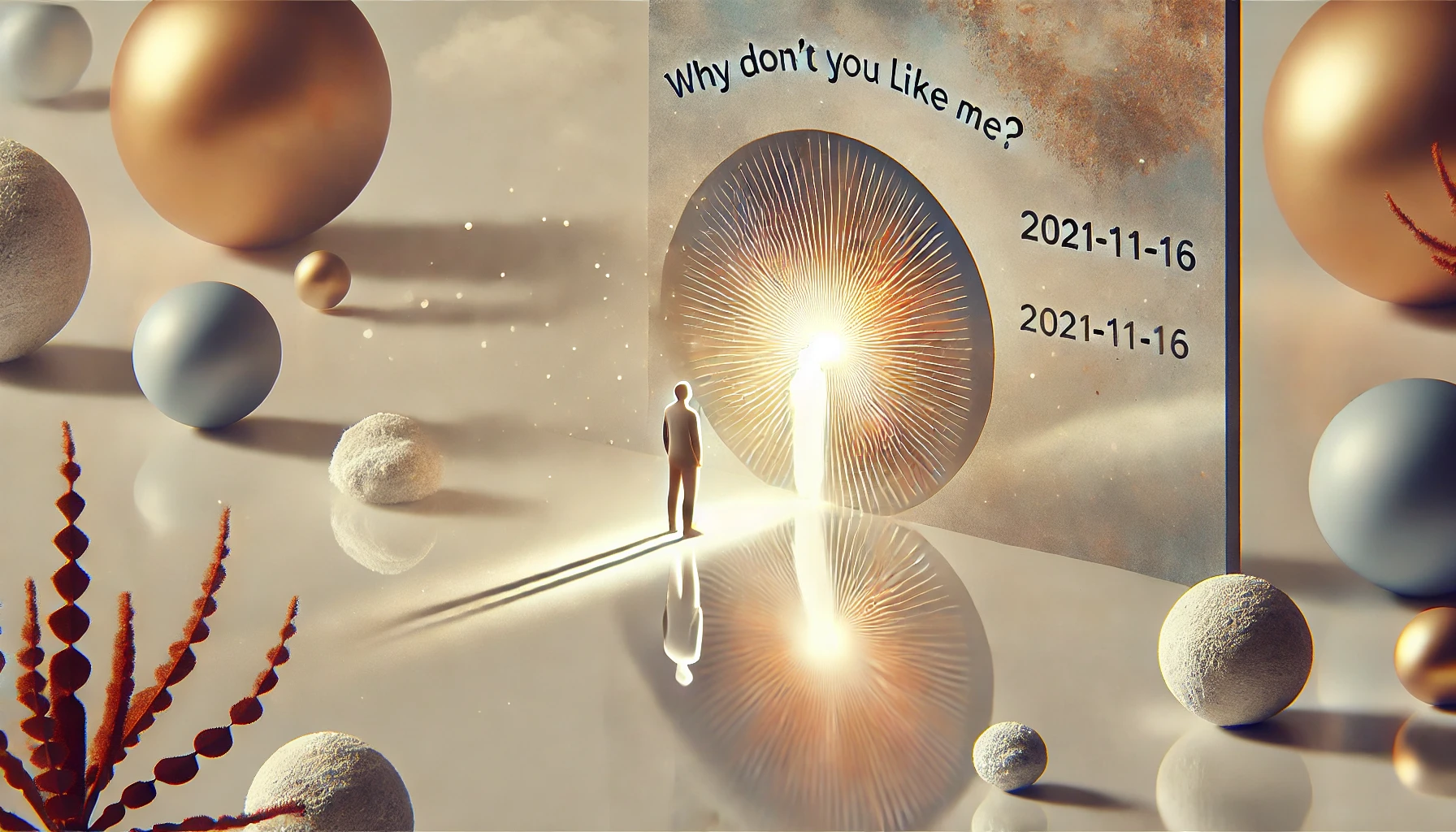
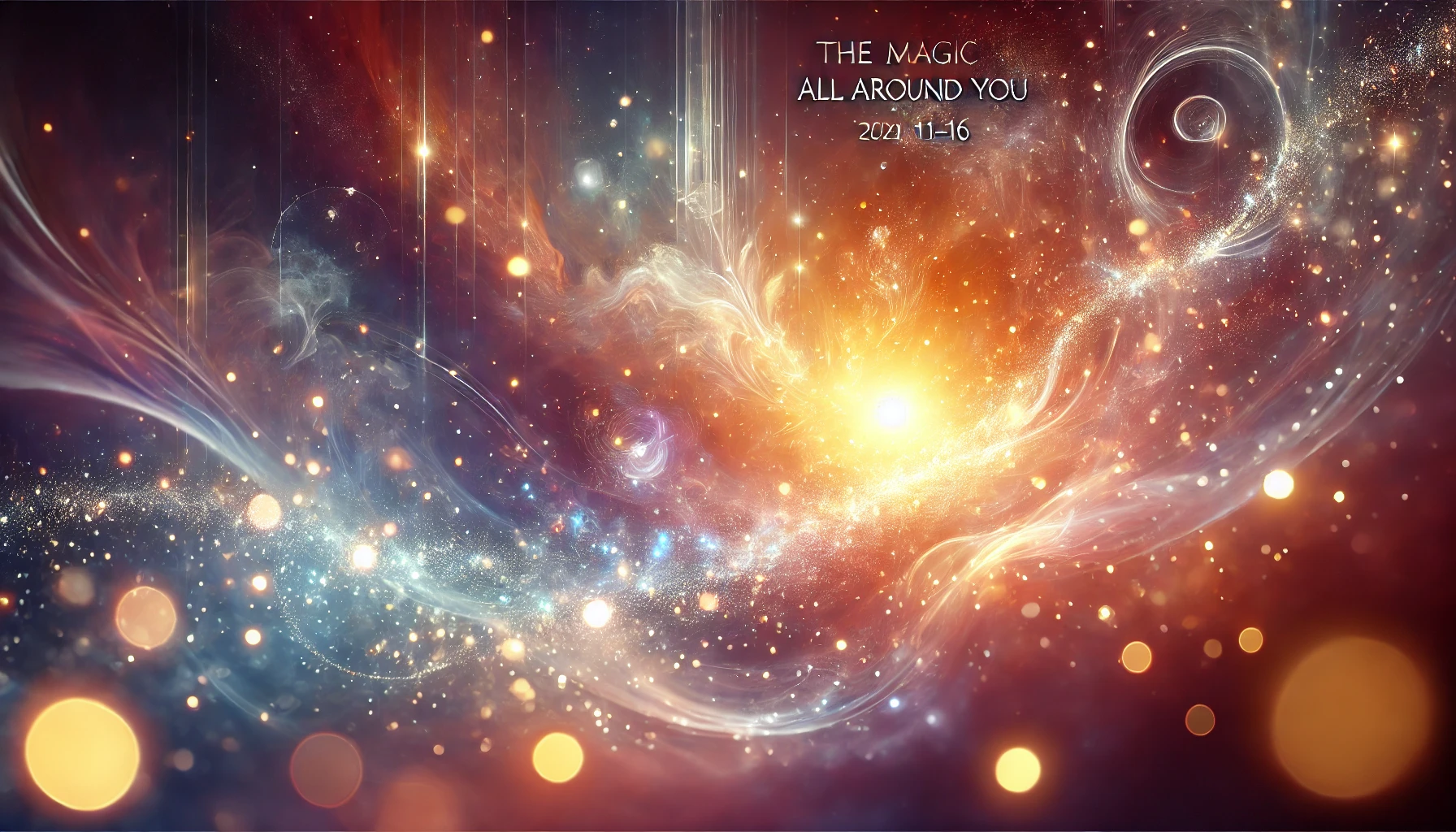
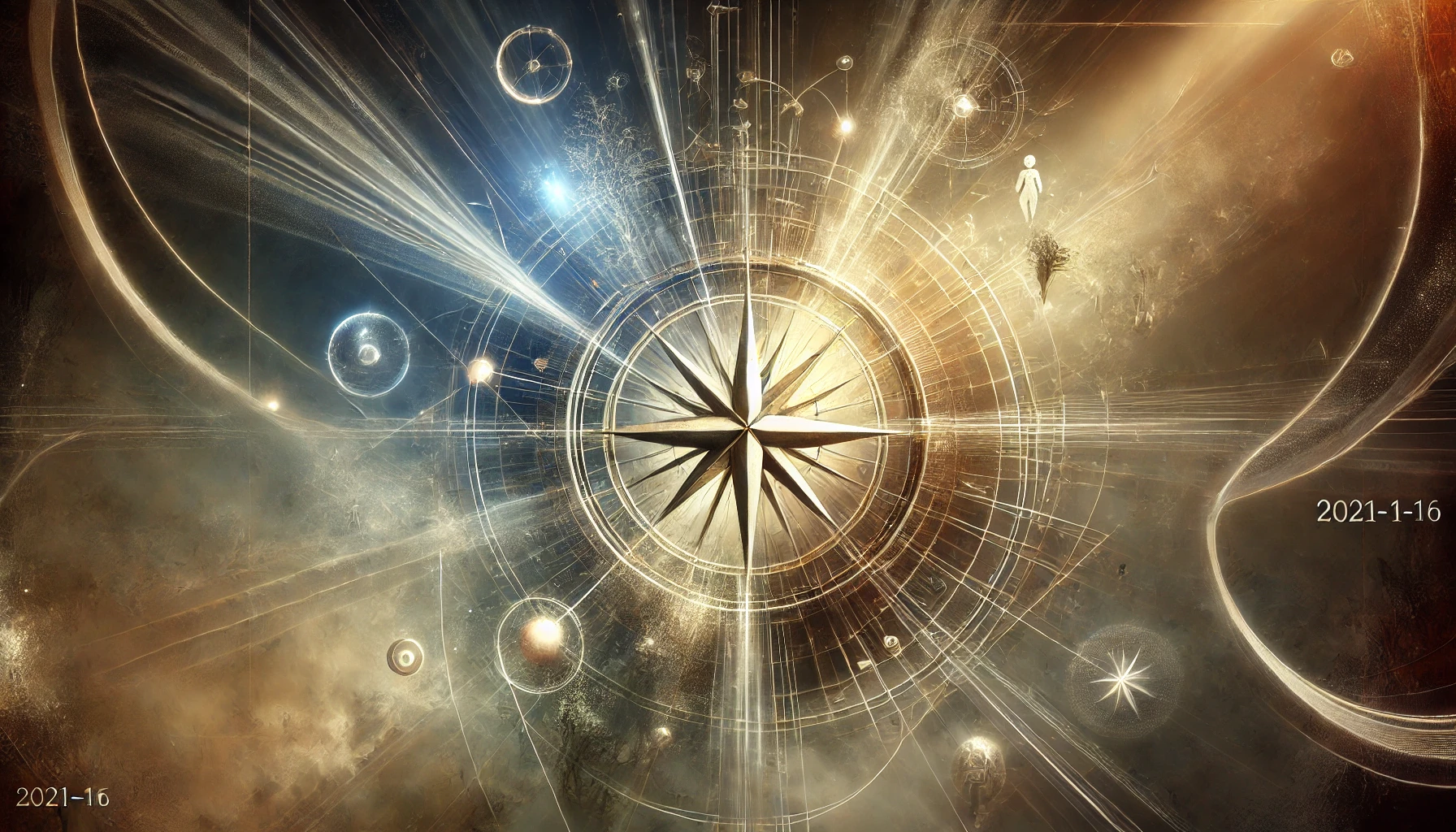
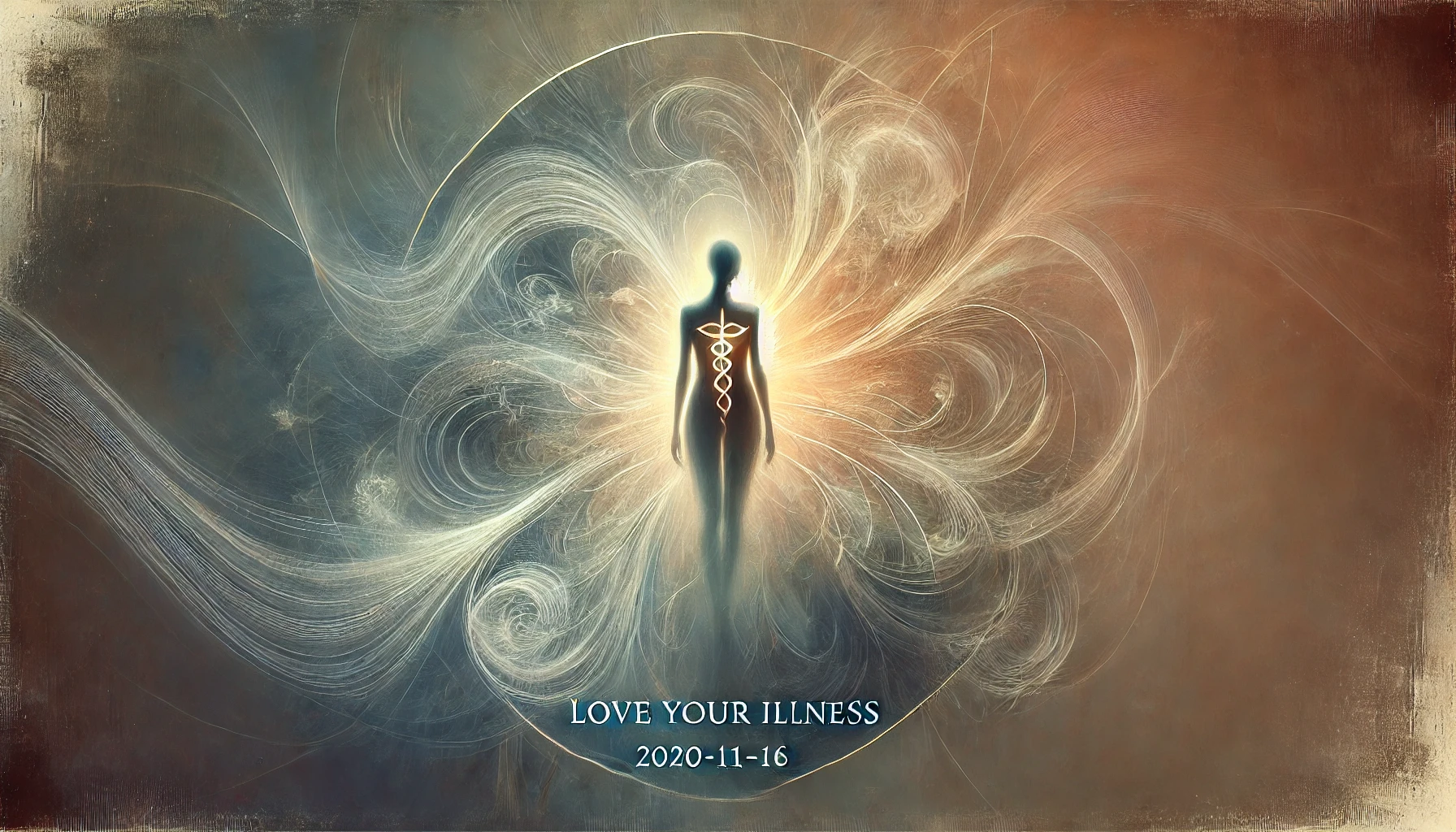
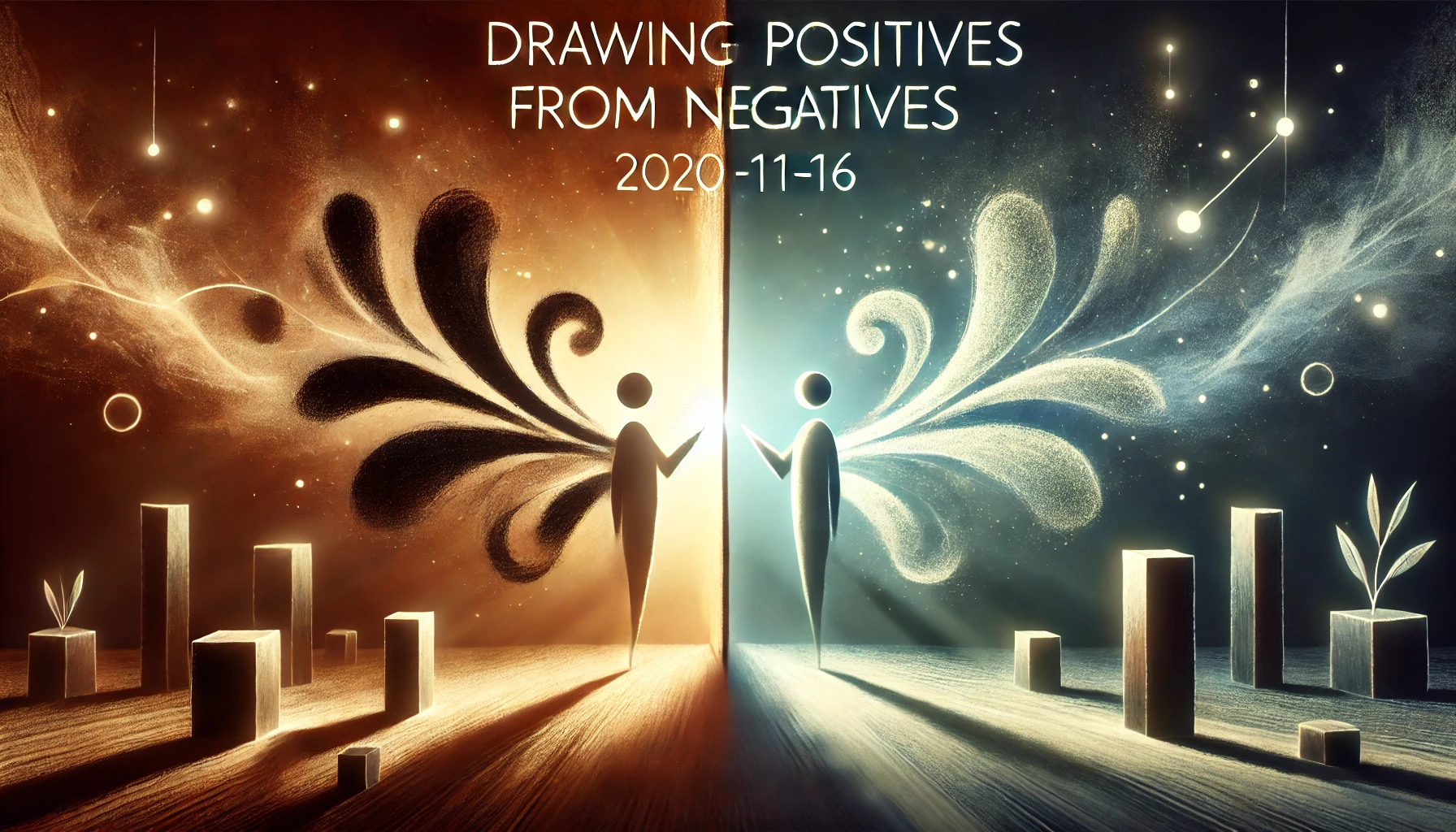
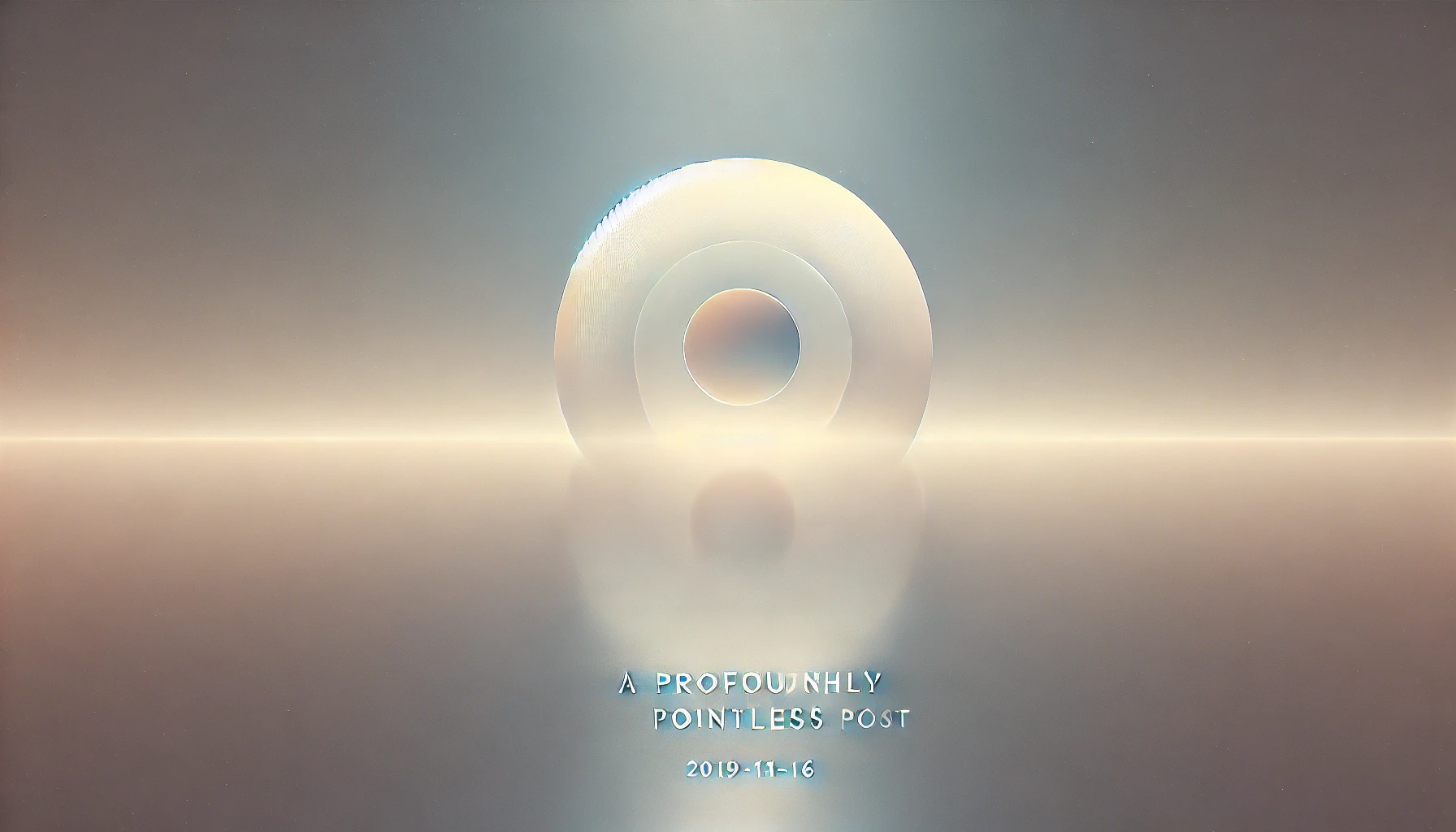
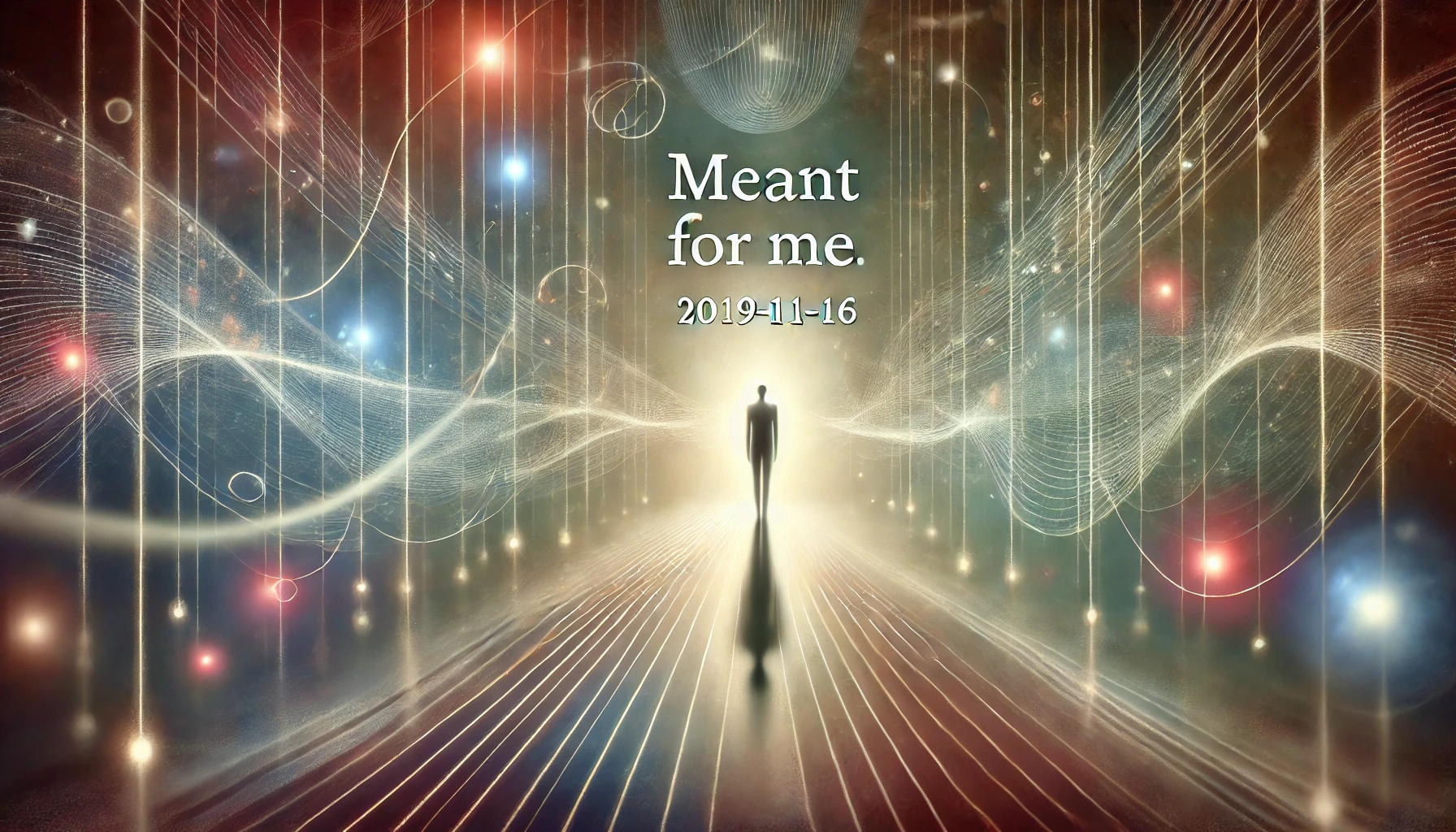
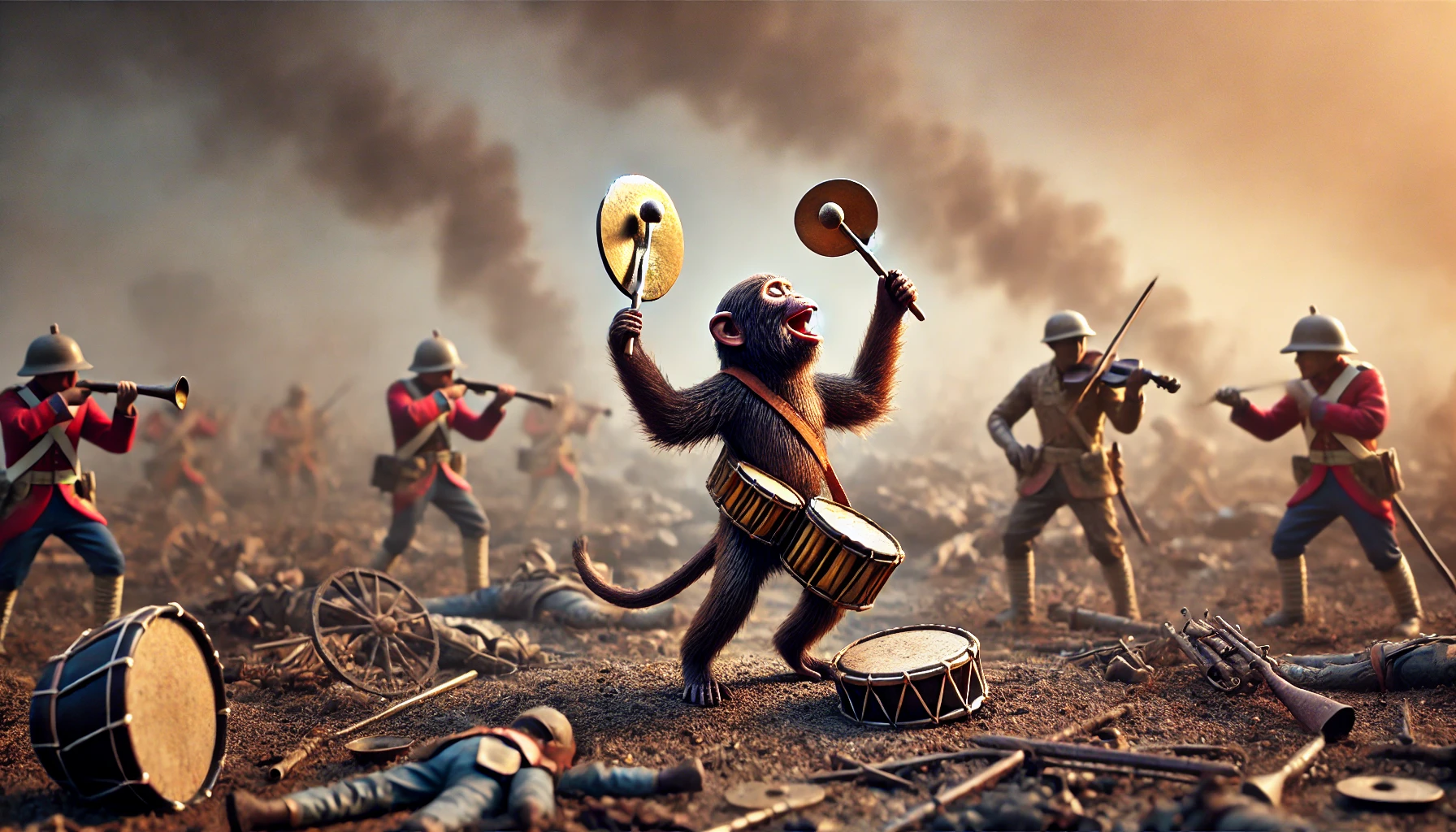
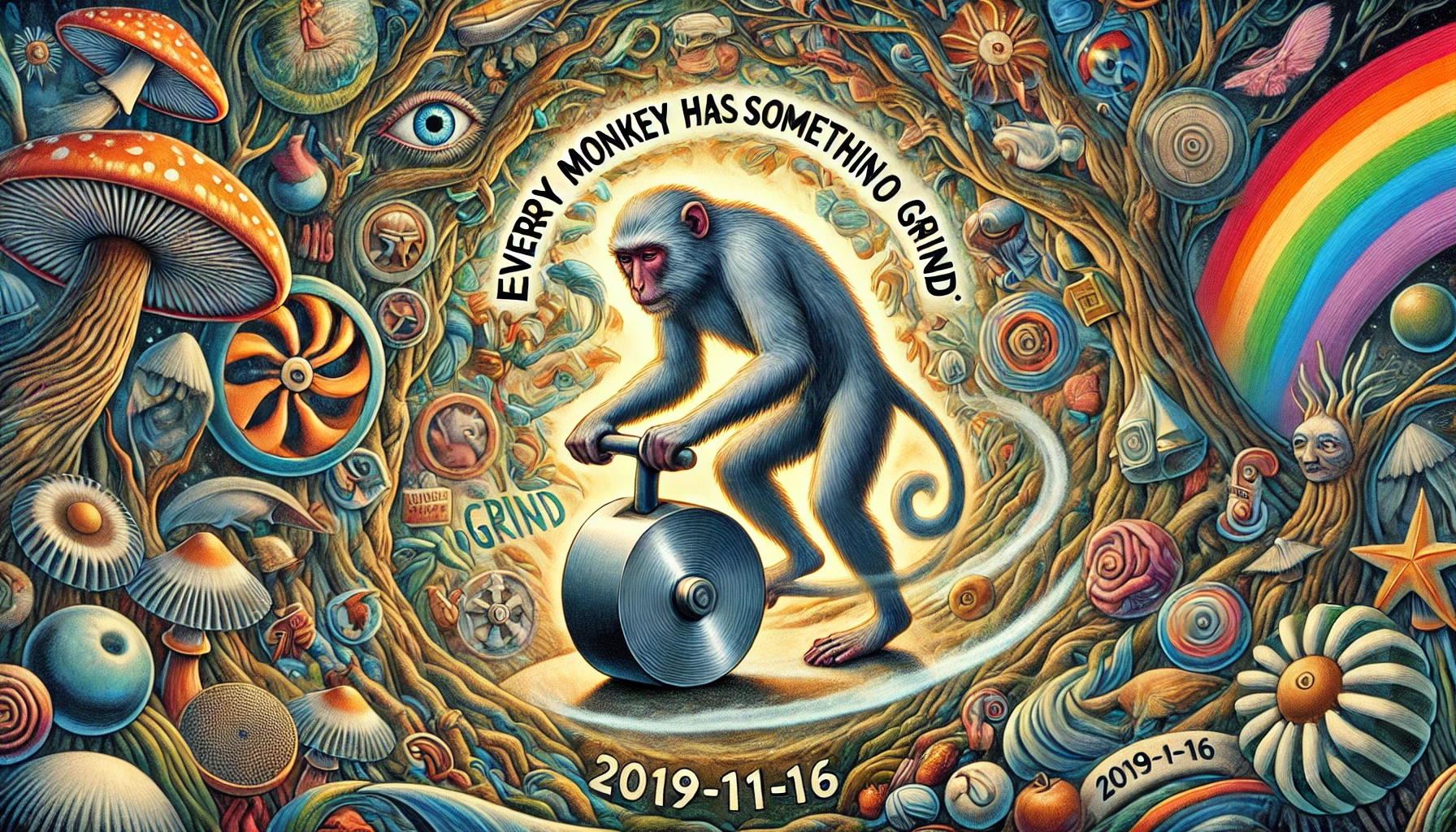
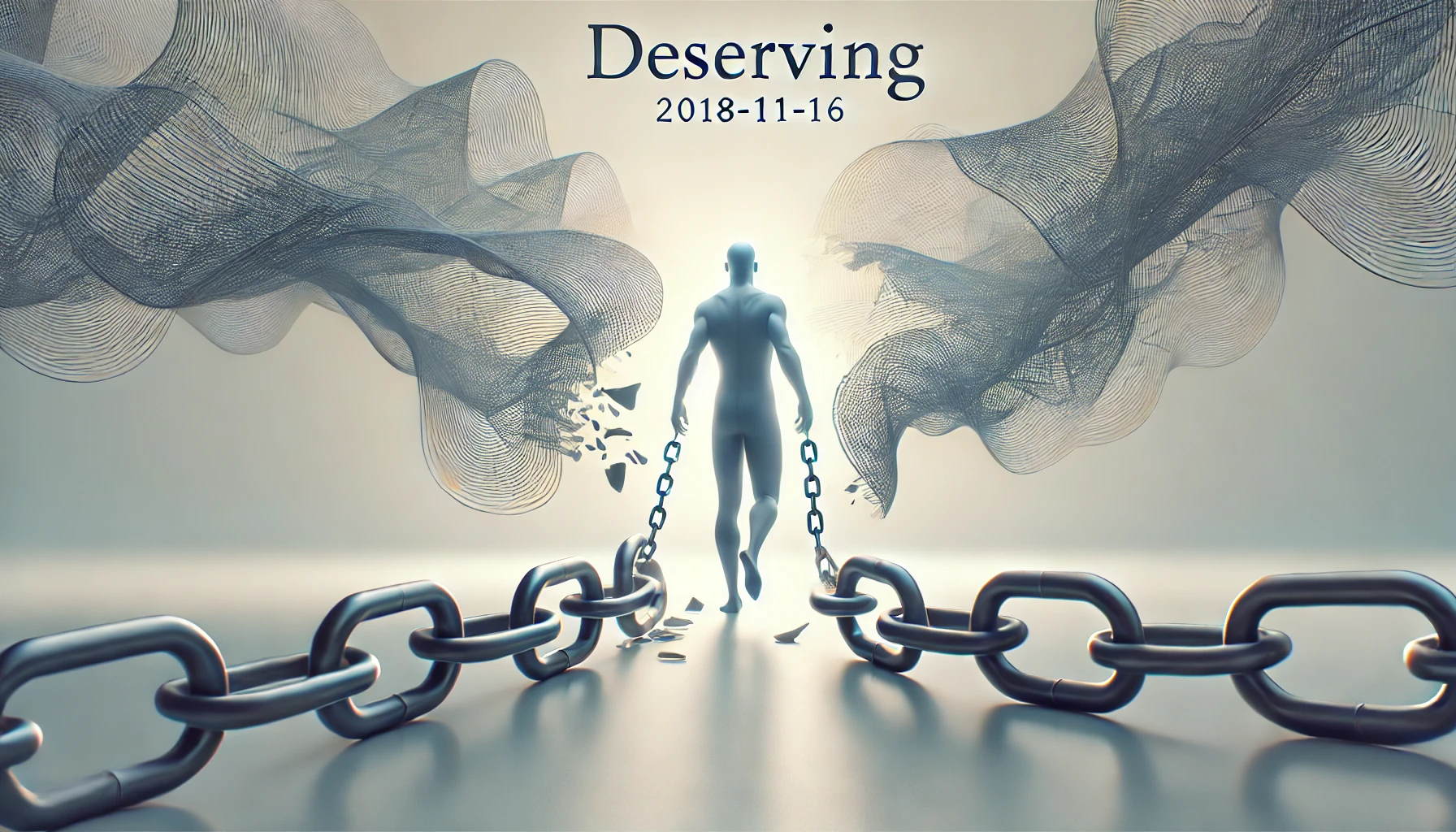
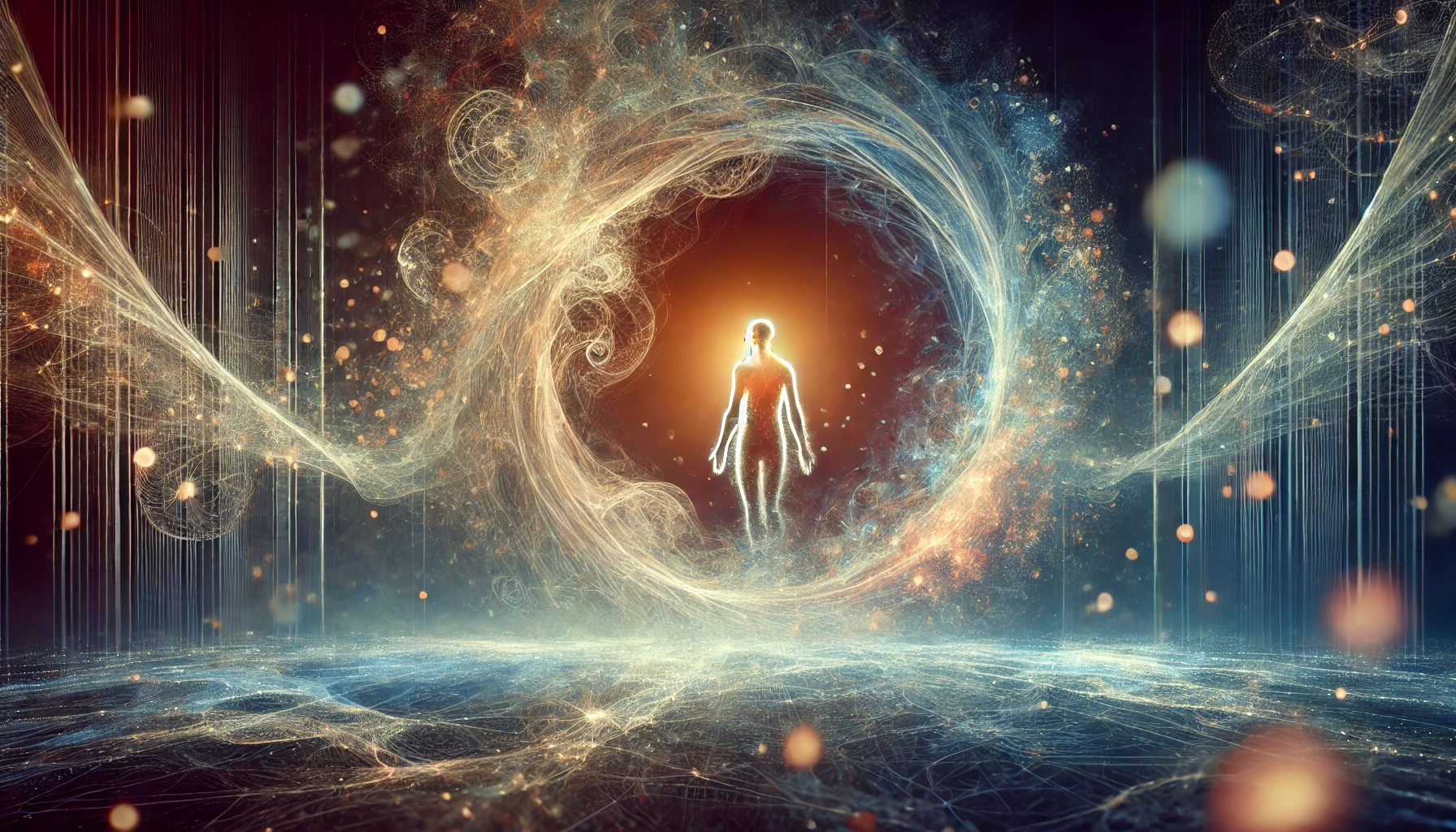
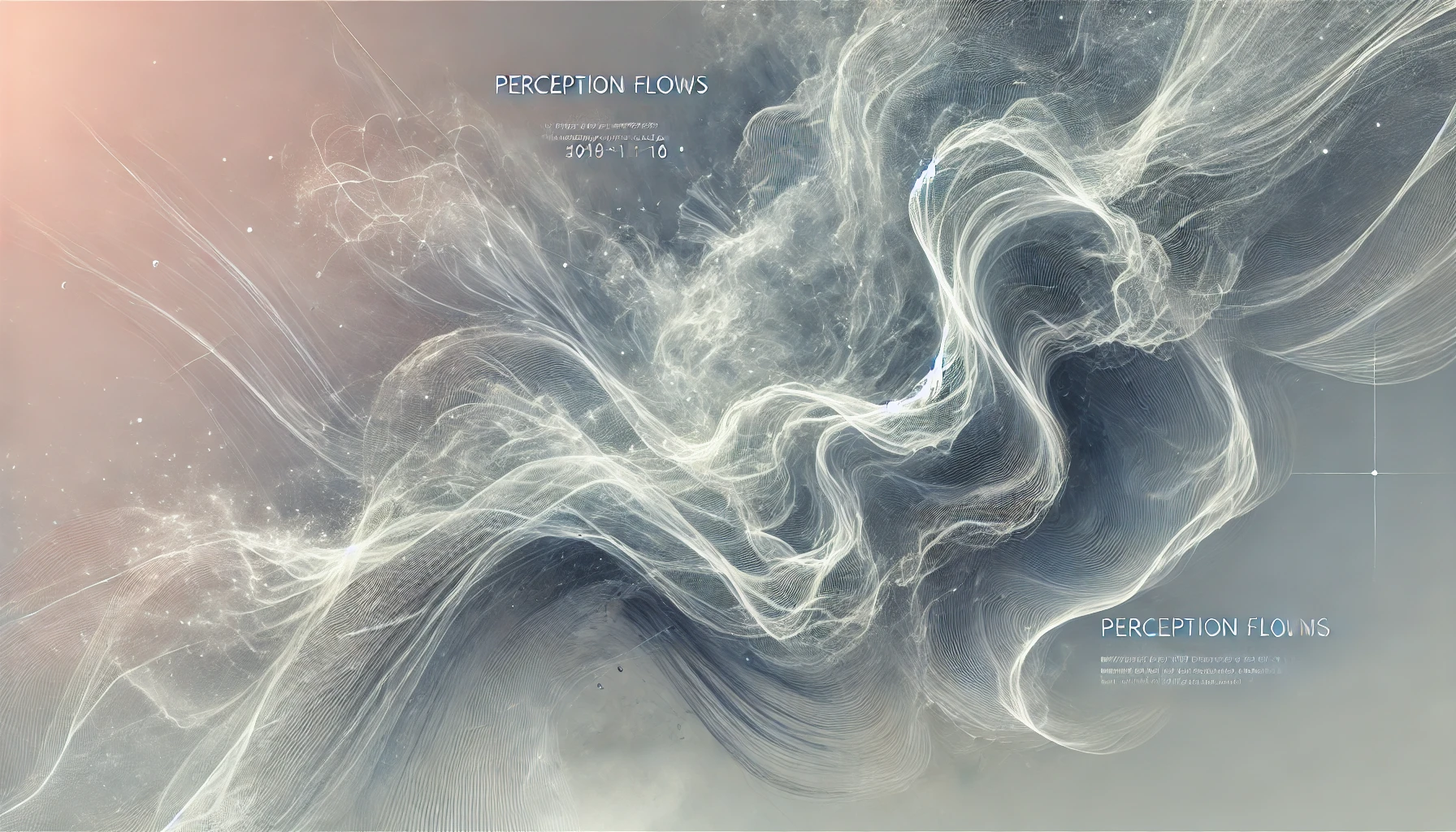
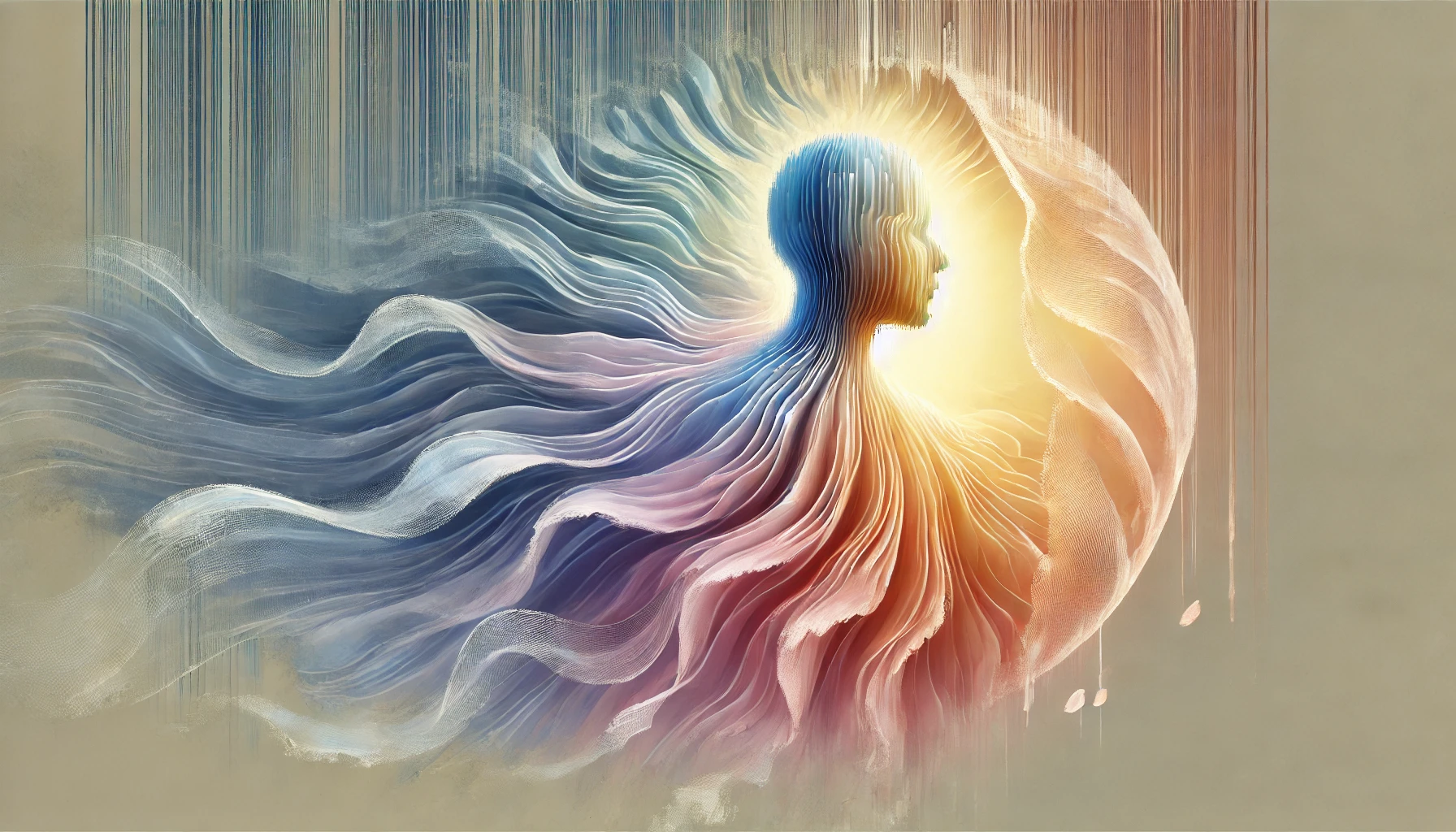
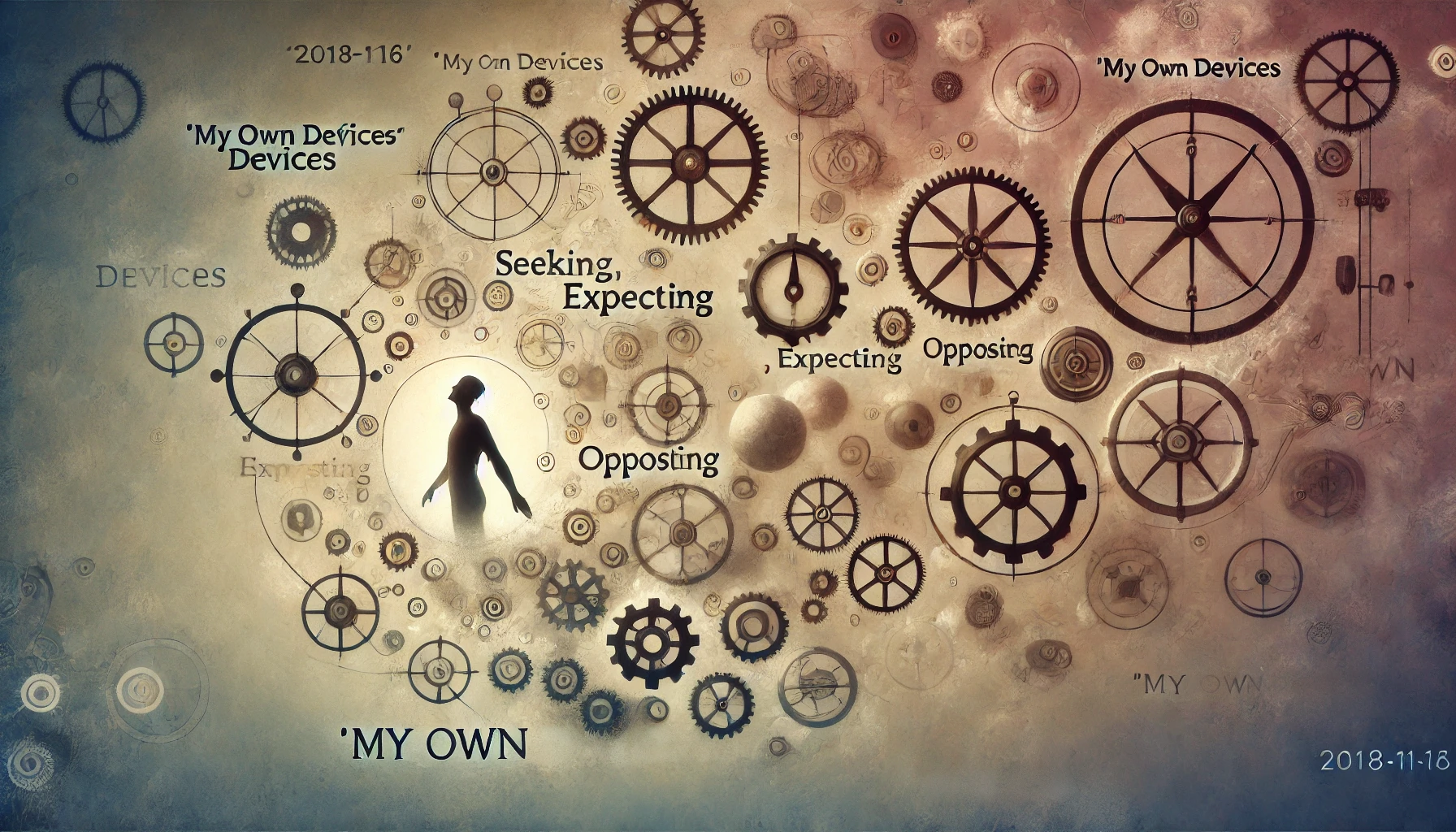
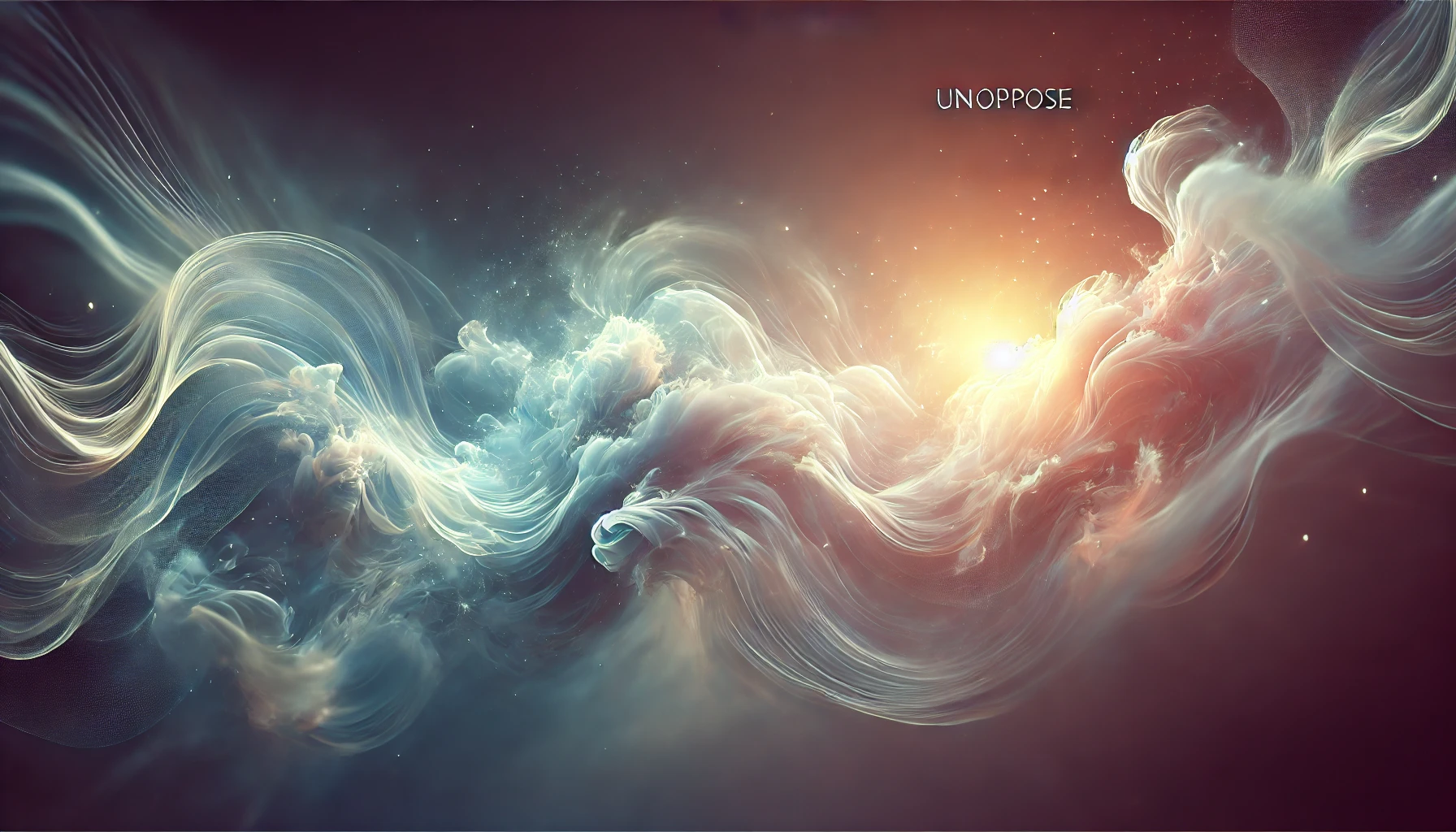
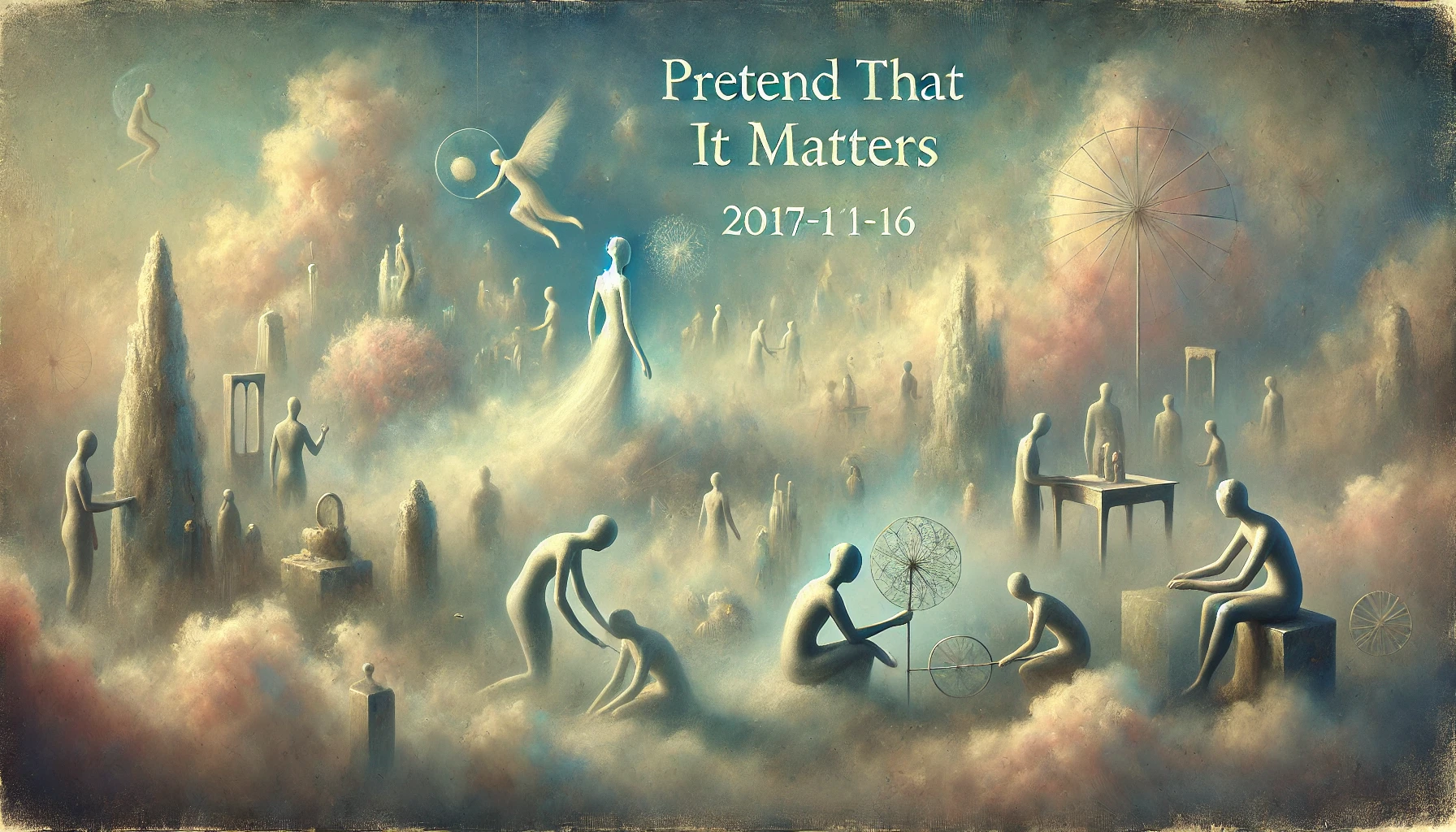
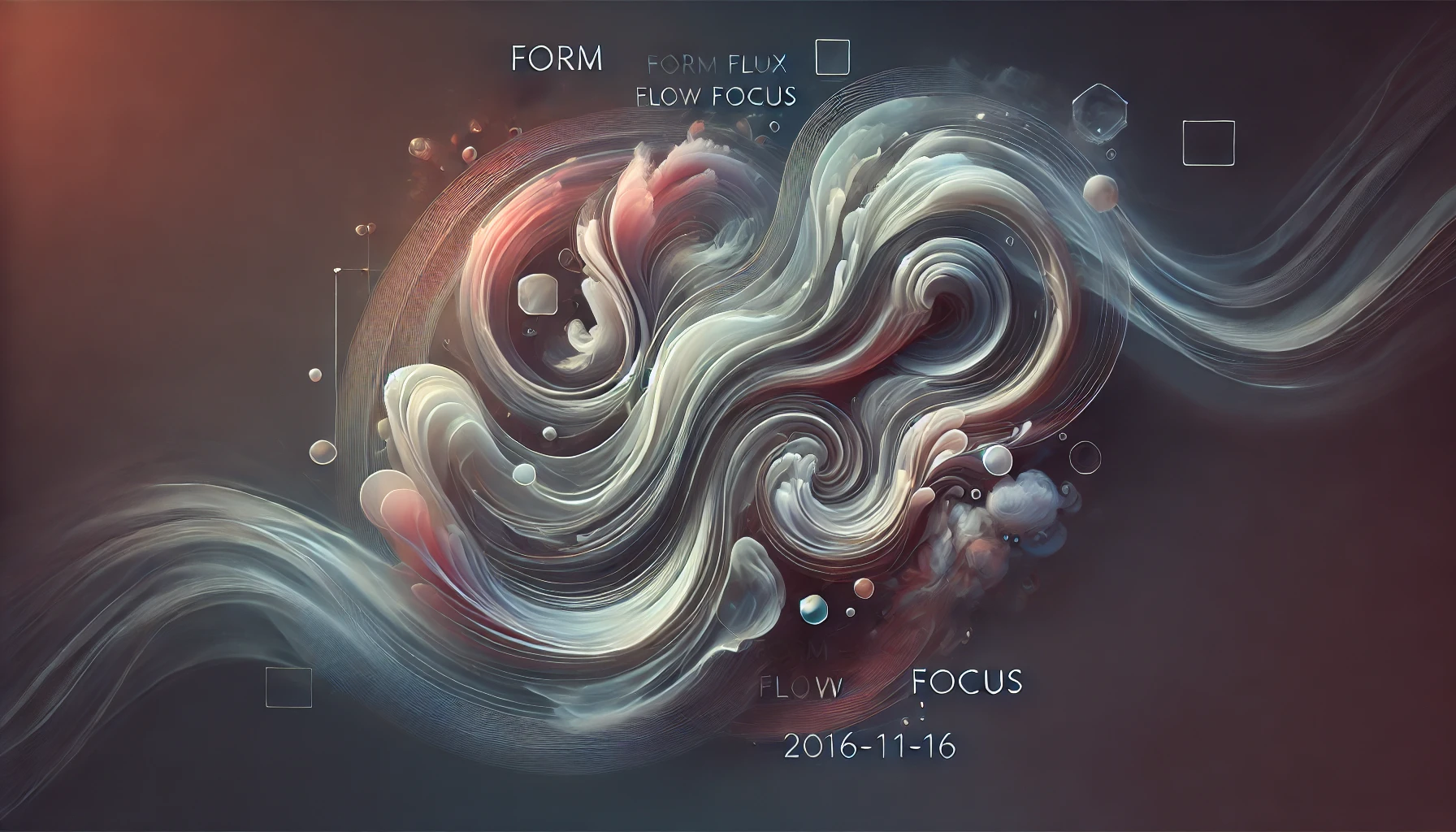
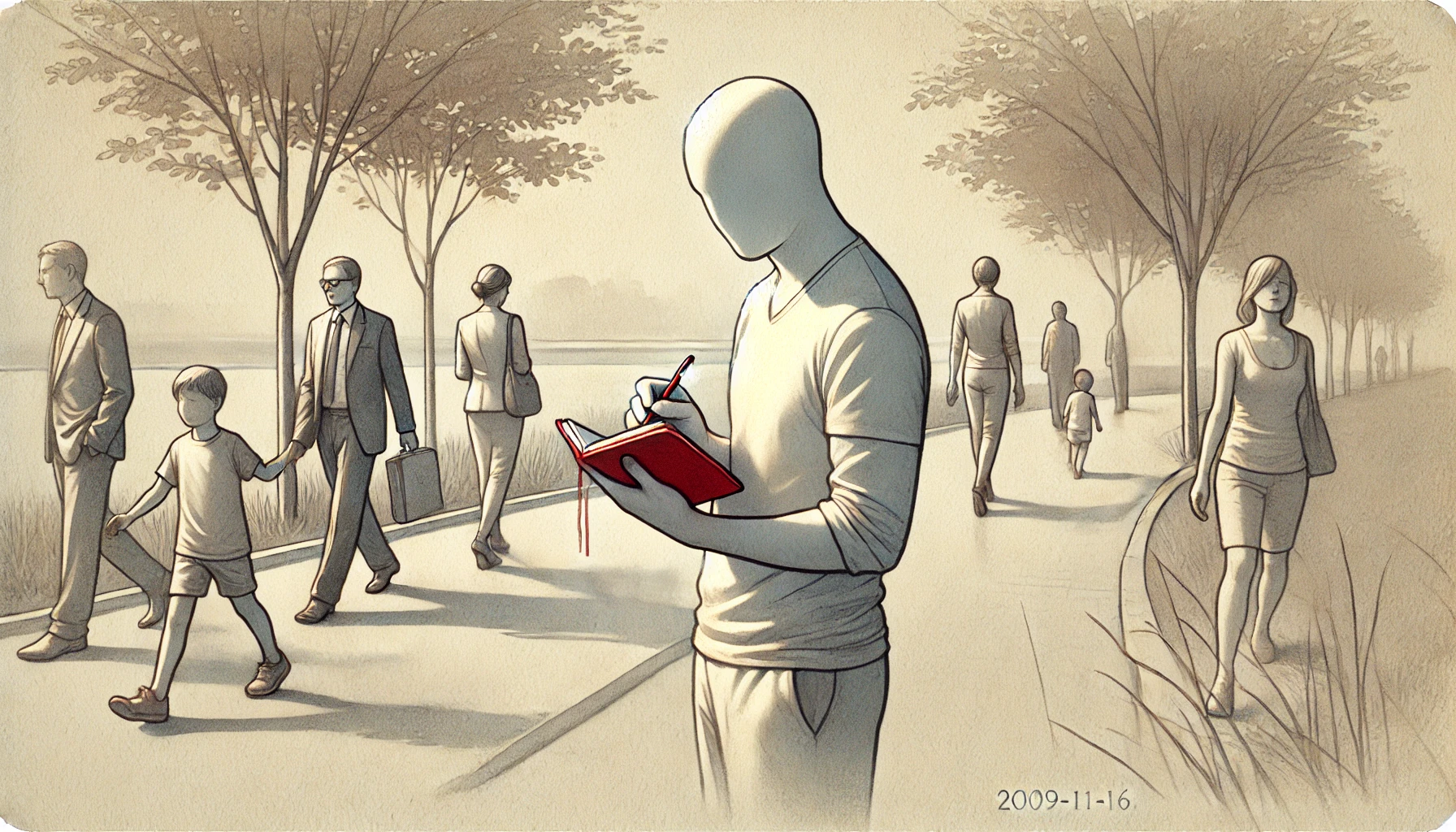
Leave a Reply